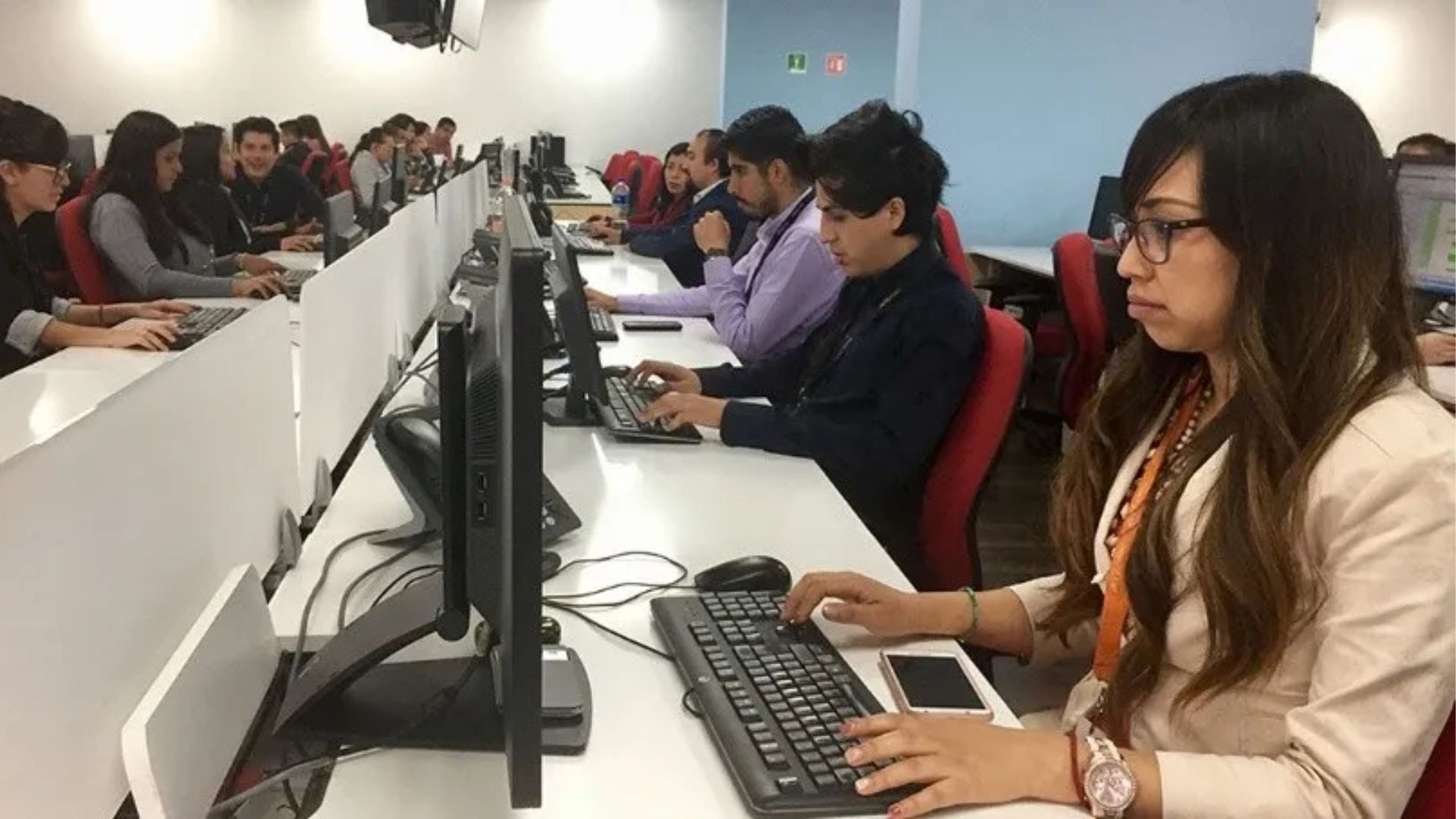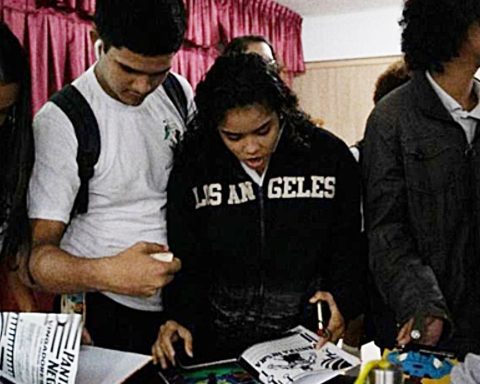In recent days, the regime of Daniel Ortega and Rosario Murillo announced that it was ordering a restructuring of state jobs, meaning that a wave of layoffs is coming. The announcement worsens the uncertain future of the country that has been immersed in a social and political crisis for six years, due to the fact that the couple refuses to leave power.
A very sensitive sector for the future of the nation suffers in silence: the youth. They do not see a clear future, they suffer from a lack of work. In 2023, Nicaragua closed with more than 2 million people of working age, but without formal employment.
Another obstacle that thousands of young people have to overcome is access to quality education, because in private schools, the monthly fee is around 120 dollars and in universities, the average cost reaches 70 dollars per month, plus transportation and materials costs, costs that are almost unattainable for many Nicaraguan families.
As a result, thousands have abandoned the classrooms and opted to work in the maquiladoras or tobacco factories, some located in the northern part of Nicaragua, some to pay for university studies, while others to help with expenses at home.
No investment, no jobs
Maricarmen González is a 21-year-old girl born in Estelí. She studies psychology and says she is aware of the problems facing the country. “The economy faces different challenges; lack of foreign investment for security reasons and the political environment that prevails in the country. If there is no work, there are no opportunities to do something,” she says.
In his opinion, the lack of work “directly affects the quality of life of young people and Nicaraguan families.” “This lack of opportunities creates anxiety and discourages young people. We are practically in a generation that is so unmotivated to continue studying or look for work, because neither of those things is possible,” he says.
Related news: Another Free Trade Zone company closed operations in Nicaragua and left 8,000 people unemployed
“It seems,” he laments, “that young people have given up. They are having children at a very early age and all this influences their future and their economy. Being in a country where there are not many opportunities to get ahead, they take another path and end up choosing to migrate in order to survive. I know young couples who have left,” he said.
«Study? or Work? But in what?»
Enoc Flores is a 24-year-old who dropped out of college, frustrated by the future and because he could no longer afford to pay for his studies. He managed to pass the third year of a communications degree at a public university in Managua, but he decided not to continue because he did not see a future in the profession he was about to finish. “There is no job market there, why continue?” he asked himself.
Flores recalled that the government has criminalized this profession and following it would imply either not getting a job or exposing oneself and one’s family to repression. “That career is of no use here for now,” he added. “It’s unfortunate because it had cost me and my family to get here, but it’s a matter of pesos and cents and there was no hope of recovering it with a job. That’s why I gave up,” said the university student who is seeking to enter the National Technological Institute INATEC, to obtain the title of Public Accounting Technician.

Flores adds that she urgently needs to work because her father cannot find work in the construction industry and her mother has not worked for six years after being fired from a company that closed. “She, my mother, takes care of my two younger brothers, ages 10 and 13, so I have to support my family by contributing to the household expenses. There is no other option,” she said.
Elsa Miranda from Masaya experienced the same situation. “I was only able to take one semester of Business Administration. My parents stopped working because they were laid off, it is desperate what is happening in the country,” she laments. Miranda found a part-time job in a convenience store and hopes to “get her finances back on track” to see if it is possible to resume her career. “For now, food is the important thing,” she points out for this report.
The sale of “Chinese illusions”
Lázara Sequeira, 24, is from the city of León. She is in her penultimate year of industrial engineering at a private university in the capital. Sequeira says she has high hopes of finishing her degree and hopes that by then, in two years, she will find work in one of the projects that the government is carrying out through the alliance with China.
For José Moncada, a construction worker from Managua, “the alliance with China is an opportunity to create jobs, but I’m not blind either, we have to make sure they come first and that they are quality jobs. One needs a job to support the family,” said Moncada, 30 years old and father of a four-year-old child.
Related news: Employment has not recovered since the 2018 crisis in Nicaragua: This is how the number of INSS contributors plummeted
Moncada lives in the La Primavera neighborhood, in the northern part of the capital. He is a B construction foreman, certified by Inatec. “I have 13 years of experience in the construction industry. I started with my father, now that he passed away I look after my boss (his mother) and two sisters as well as my son,” he said.
“I really want to study, to be a professional, but in this country you either work or study. There is no opportunity to do both, not because you don’t fight or make sacrifices, but because life is so expensive here and salaries are low,” he complains, while he finishes putting together an iron column that will serve as a base for a horizontal structure that is being built in Managua by a company that has employed him since last May.
Call Centers, a “lifeline”

Salvador Moreno, a 19-year-old resident of a residential area in the capital, located on the Masaya highway, has been studying English since he was 15. He recently obtained a job at a Call Center, where he earns between 600 and 800 dollars a month depending on the season.
«I had it very clear since I was a teenager, I thought that the best way to earn money was working in a Call Center, that’s why I studied English, I would like to study a professional career but for now I’m saving to pay for my degree. My parents are in the United States, I’m an only child and I don’t plan on traveling, the best option to work in Nicaragua for me is English, it opens doors for you,» he explains.
Like Moreno, there are more than 12,000 young Nicaraguans working in the 13 most recognized Call Centers in Managua. The information is confirmed by Pedro Ortega, from the Sandinista Workers’ Central, CST. The union leader recalled that these companies operate under the Free Trade Zone regime. “They have benefits, so they should contribute by creating jobs,” said the Sandinista leader.
In the country, 63 thousand young people graduate from secondary education every year. Some manage to continue, others look for informal jobs and a good part has left the country after realizing that there are no opportunities under the Ortega-Murillo regime.
The regime’s “numbers in the air”: The country is swimming in jobs, he says
Figures from the Nicaraguan government indicate a boom in employment, according to the labor report of the National Institute of Development Information INIDE. during the period of December 2023. The Nicaraguan Social Security Institute INSS also reflects figures that contradict the reality of the more than 2 million Nicaraguans who are unemployed or who survive in informal employment.
The main findings
According to the INIDE report in December 2023, the net occupancy rate at the national level was 97.5 percent, while in 2022 it was 97.4% until December, the report indicates that for the urban area it was 96.8 percent and (95.7% in Managua), and 98.5 percent in the rural area, that is, at the national level there is a total of 97.1 percent, according to the report of the employment rate regime (working-age population plus employees).
According to the Index Mundi website, in Nicaragua there is an economically active population (EAP) of 3,382,352 people, however, the Nicaraguan Social Security Institute INSS reports until December 2023 a total of 791,913 insured, which means that of the 3,382,352 Nicaraguans of working age, there are 2,590,459 people who are unemployed or in informal employment.
According to INSS data, the formal employment rate stands at 23.41% of the economically active population, coinciding with the 791,913 insured persons in the INSS.

Another relevant fact from the INIDE report is the national underemployment rate, which indicates that until December 2023 it is 40.3 percent, while in December 2022 the report places it at 38.4%; therefore, there are more than 1.3 million people underemployed or in informal employment, according to estimates by independent economists.

















